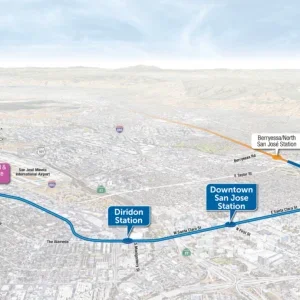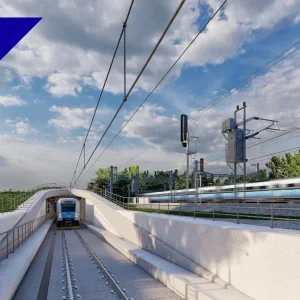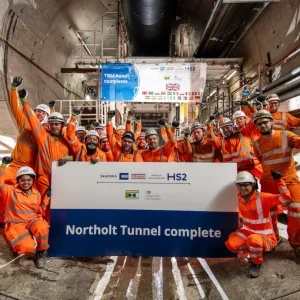The Budapest City Council and Hungary’s central government reached a settlement last month over the financing of Budapest’s 7.3km long Line 4 metro, costing US$936M, and built completely underground.
After more than four years of wrangling, an agreement was made that will see the government finance 70% of the line, and city 30%.
The city and the government intend to finance 75% of the project’s costs from a loan granted by the European Investment Bank (EIB). The EIB loan will be extended for 25 years, with a seven-year grace period. According to plans, Hungary will apply for financing for up to 15% of the project’s costs from the EU’s structural funds after 2007. If the project receives funding from the EU, the city and the government will maintain their agreed 30%–70% split in shouldering the remaining costs.
The construction of Line 4 will be the largest infrastructure project in Hungary for some years. A 7.3km metro track will run from District 11’s Kelenfold to Keleti railway station in District 7.
The launch of the project is still dependent on Parliament passing a draft bill, dubbed the Metro Bill, this summer. If successful, DBR Metro Project Directorate will invite tenders in Q3 2003.
DBR Metro will call 29 international tenders for the various works, such as preparing the construction sites, TBM tunnel excavation, construction of metro stops and the track, supplying metro cars, building the electrical system and developing an integrated management system.
There are plans to extend the metro line all the way to District 14’s Bosnyak ter at a later stage, but a lack of financial resources, has restricted the line to the shorter version for now. A decision on the second phase should be made by the beginning of 2005. The entire metro project is expected to have a total budget of around US$1.4bn.
Construction should begin in the second half of 2004, and the first sections ready by 2005. The entire first phase should be open to traffic in 2007-2008, and expected to carry about 600,000 passengers a day.







